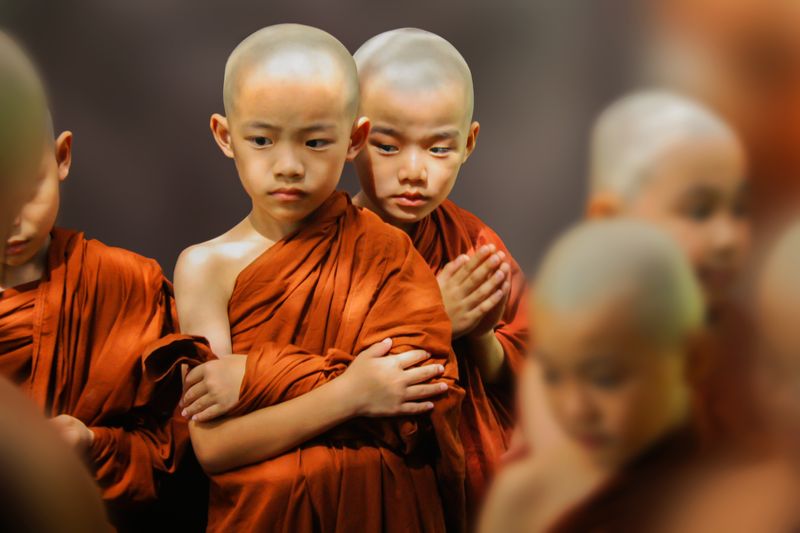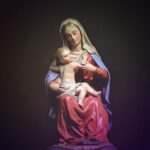Yom Kippur: A Day of Atonement and Reflection
Yom Kippur, also known as the Day of Atonement, is the most important day of the year in the Jewish faith. This religious holiday marks the end of the 10-day period of repentance and reflection known as the “High Holidays,” which begins with Rosh Hashanah. On Yom Kippur, Jewish people reflect on their sins, ask for forgiveness from God and those they have wronged, and believe that God will decide their fate for the year ahead.
When is Yom Kippur?
Yom Kippur is held from the evening of Sunday, Sept. 24 to the evening of Monday, Sept. 25. It takes place on the 10th day of the Hebrew calendar, following Rosh Hashanah, the Jewish New Year.
How is Yom Kippur Celebrated?
Yom Kippur is typically observed with a day of reflection, prayer, and fasting. Followers of the Jewish faith attend religious services and refrain from eating from sundown to sundown. The purpose of fasting on Yom Kippur is to demonstrate self-discipline, focus on spirituality, and seek repentance. However, young children and individuals facing a medical risk from fasting are exempt from this practice.
At the end of the Day of Atonement, a symbolic “shofar” horn is blown to mark the conclusion of the fast. This horn, traditionally made from a ram’s horn, holds great significance in Jewish culture and is also blown during Rosh Hashanah. It is believed to announce the arrival of the Sabbath and is blown every day during the month leading up to the holiday.
After fasting for 25 hours, people break their fast with a festive meal prepared to rebuild their strength. While there are no specific rules regarding the post-fast meal, it is common to choose easily digestible foods to avoid shocking the system, such as bagels, eggs, and salads.
Preparation for the Fast
The Yom Kippur fast poses a significant challenge, primarily due to dehydration. To prepare for the day-long fast, it is recommended to drink plenty of water in the days leading up to Yom Kippur. Additionally, many Jewish people have a lunch filled with protein the day before the fast, followed by a dinner known as “Seudat Mafseket,” or Meal of Cessation, which is rich in carbohydrates and low in sodium.
Yom Kippur Greetings
During Yom Kippur, it is customary for people to greet one another with the Hebrew saying, “Gemar chatimah tovah,” which means “A good final sealing.” This phrase signifies the belief that on this day, their fates for the upcoming year will be ultimately decided. It is also common to wish someone an easy fast. However, it is not customary to wish someone a “Happy Yom Kippur,” as the solemn nature of the holiday does not lend itself to festive well-wishes.
Editorial: The Significance of Yom Kippur
Yom Kippur holds deep spiritual and introspective significance for Jewish individuals around the world. It is a time for deep reflection, repentance, and seeking forgiveness. The act of fasting on this sacred day is not just a physical sacrifice, but also a demonstration of one’s commitment to personal growth and spiritual connection.
Yom Kippur reminds us of the importance of introspection and taking responsibility for our actions. It prompts us to examine our relationships, both with ourselves and others, and to seek reconciliation and forgiveness. It is a day dedicated to self-improvement and accountability, urging us to strive for a better version of ourselves.
Furthermore, Yom Kippur serves as a reminder that forgiveness and empathy are essential elements of our humanity. It teaches us the value of understanding, compassion, and extending forgiveness to those who have wronged us, as well as seeking forgiveness from those we have hurt.
While Yom Kippur is a deeply religious holiday, its messages of self-reflection, repentance, and forgiveness are universal and can resonate with people of all faiths and backgrounds. It reminds us of our shared humanity and the importance of continually striving to be better individuals, fostering peace, understanding, and compassion in our interactions with others.
Advice for Observing Yom Kippur
If you are looking to observe Yom Kippur, there are several things you can do to respectfully engage with this important day:
1. Learn about Yom Kippur
Take the time to educate yourself about the significance and traditions associated with Yom Kippur. Understanding the purpose and rituals of the holiday will enhance your experience and allow you to engage with it more meaningfully.
2. Attend Religious Services
If possible, consider attending a Yom Kippur service at a local synagogue or Jewish community center. Participating in the prayers and ceremonies can provide a deeper understanding of the religious observance and allow you to connect with the Jewish community.
3. Reflect and Seek Forgiveness
Take a moment to reflect on your own actions and relationships. Consider how you may have wronged others and take this opportunity to seek their forgiveness. Additionally, forgive those who have hurt you, as forgiveness is a powerful act of healing and growth.
4. Practice Self-Discipline
If you are medically able, consider fasting on Yom Kippur as a sign of solidarity and commitment to personal growth. However, if fasting poses a health risk, choose an alternative way to observe the day, such as abstaining from specific foods or engaging in acts of charity and community service.
5. Show Respect and Sensitivity
If you have friends, colleagues, or neighbors who are observing Yom Kippur, be respectful of their commitment to the holiday. Avoid scheduling events or activities that may conflict with their observance, and try to accommodate their needs if possible.
Overall, Yom Kippur provides an opportunity for personal growth, reflection, and seeking forgiveness. By engaging respectfully with this significant day, we can learn valuable lessons about self-improvement, empathy, and compassion, fostering a more understanding and tolerant society for all.

<< photo by Pixabay >>
The image is for illustrative purposes only and does not depict the actual situation.
You might want to read !
- Exploring the Traditions and Significance of Rosh Hashanah in Canadian Jewish Communities
- “Exploring the Start of Rosh Hashanah 2023: Cultural Significance and Greetings”
- Bells Keep Ringing: Reflecting on 22 Years Since 9/11 Across America
- ‘The Continental’ Transforms ‘The World of John Wick’ with Thrilling TV Adaptation
- “U.S. Senator Bob Menendez and Wife Indicted in Bribery Probe: A Deepening Political Scandal”
- “Blink-182’s Heartfelt Music Video for ‘ONE MORE TIME’ Strikes an Emotional Chord”




